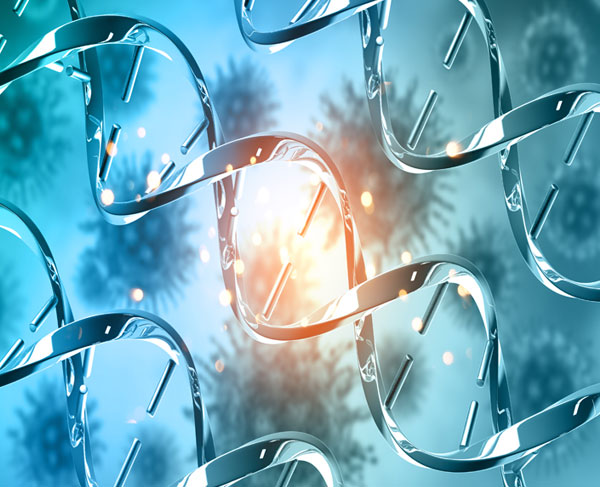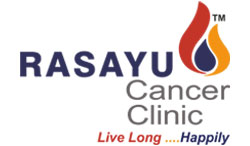Cancer Types
- Bladder Cancer
- Bone Cancer
- Breast Cancer
- Cervical Cancer
- Colorectal Cancer
- Endometrial Cancer
- Head & Neck Cancer
- Kidney Cancer
- Laryngeal Cancer
- Leukaemia
- Liver Cancer
- Lung Cancer
- Multiple Myeloma
- Nasopharyngeal Cancer
- Non-Hodgkin's Lymphoma
- Oesophagus Cancer
- Oral Cancer
- Ovarian Cancer
- Pancreatic Cancer
- Prostate Cancer
- Skin Cancer
- Stomach Cancer
- Testicular Cancer
- Thyroid Cancer
Opening Hours
- Monday - Saturday 10:00 am - 7.00 pm

Thyroid Cancer
Thyroid tumors are the most common endocrine neoplasms.
Thyroid disorders are the most common among all the endocrine diseases in India.
Thyroid cancer is ranked 10 th in the list of highly probable cancers and comprises 3.1% of all cancer patients annually.
The death rate is 0.43% per year out of deaths caused by cancer.
The 5-year survival rate is almost 100% for localized papillary, follicular, and medullary thyroid cancers and localized anaplastic thyroid cancer, it stands at 31%.
Recent studies showed 50% of people in the community have microscopic nodules, 3.5% have occult papillary carcinoma, 15% have palpable goitres, 10% demonstrate an abnormal thyroid-stimulating hormone level, and 5% of women have overt hypothyroidism or hyperthyroidism.
In areas of iodine sufficiency, papillary carcinomas are the predominant variety.
Different studies from India show a predominance of papillary malignancy followed by follicular malignancies.
Thyroid Cancer types :
- Papillary thyroid cancer – Papillary thyroid cancer develops from follicular cells and usually grow slowly. It is the most common type of thyroid cancer. It is usually found in 1 lobe. The tumor often looks similar to normal thyroid tissue under a microscope. It spreads to the lymph nodes.
- Follicular thyroid cancer – Follicular thyroid cancer also develops from follicular cells and usually grows slowly and is less prevalent. They are curable, if detected early and in people younger than 50 years of age.
- Hurthle cell cancer – is a cancer that is arises from a certain type of follicular cell. Hurthle cell cancers are much more likely to spread to lymph nodes than other follicular thyroid cancers.
- Medullary thyroid cancer (MTC) – MTC develops in the C cells and is sometimes the result of a genetic syndrome. It can often be controlled if diagnosed early and treated before it spreads to other parts of the body.
- Anaplastic thyroid cancer – This type is rare, accounting for about 1% of thyroid cancer. It is a fast-growing, poorly differentiated thyroid cancer that may start from differentiated thyroid cancer or a benign thyroid tumor and therefore prognosis is unfavourable.
Causes
- Thyroid cancer can occur at any age, but the risk peaks earlier for women (who are most often in their 40s or 50s when diagnosed) than for men (who are usually in their 60s or 70s).
- Follicular Thyroid cancers are more common in areas of the world where people’s diets are low in iodine.
- Exposure to radiation therapy.
- Family history of thyroid cancer.
Carcinogenic agents with sufficient evidence.
- No specific evidence is found so far.
Carcinogenic agents with limited evidence.
- Radioiodines, including Iodine-131.
- X-radiation, gamma-radiation.
Signs and Symptoms
- Thyroid cancer most commonly patient feel a painless, palpable, solitary thyroid nodule.
- Solitary nodules: Most likely to be malignant in patients older than 60 years and in patients younger than 30 years.
- Nodular growth.
- Rapid growth: Ominous sign.
- Usually painless (nontender to palpation).
- Hard and fixed nodules etc.
Investigations / Screening
- Physical examination and history- Physical examination does not necessarily be useful for diagnosing purposes.
- Biopsy – FNAB- This is important diagnostic tool in evaluating whether Thyroid nodule is benign or cancerous. Cells are removed from the nodule that are examined by pathologist.
- Biopsy- A piece of the tissue of the affected area is collected and tested to see the cellular structure and verify if it has cancerous cells.
- PET scan/MRI/CT scan- A CT scan can be used to measure the tumor’s size and extent. The scan can provide a more accurate image than the ultrasound sonography. The PET scan provides the details of the spread of the cancer within the thyroid and beyond into other organs or areas.
- Biomarkers investigations – are used to determine the tumor and its type.
- Blood investigation reports – tests such as T3, T4, TSH provide information about the functioning of the thyroid gland and that can further direct to a pathological focus.
- Serum calcitonin/ pentagastrin values also shed light on the thyroid.
Treatment
- To plan personalised treatment for each individual patient as every individual is different even if they have the same type of cancer.
- To improve health related quality of life (QOL) in all types and stages of cancer patients.
- To plan for partial or total regression of tumour depending on the nature of tumors.
- To increase overall survival (OS) of patients.
- To increase disease free survival (DFS) where complete resection of tumour is achieved.
- To provide a treatment option to patients who are refractory to conventional treatments like chemotherapy / radiotherapy / immunotherapy etc.
- To reduce the rate of growth of the tumor in recurrent and advanced staged cases.
- To increase progression free survival in advance cases.
- To reduce impact of symptoms related to progression of disease.
- To improve confidence of patients.
- To provide palliative support in end-of- life cancer cases.
- To add happiness and extension of life to cancer patients.
- To compliment other therapies like chemotherapy, radiotherapy in a synergistic way.
- To reduce severity or adverse effects of other conventional treatment. This reduces incidence and frequency of hospitalization.
- It is pertinent to note that Rasayu Cancer Clinic does not claim or blame anything while communicating any aspect to cancer patients.
- Rasayu Cancer Clinic focuses on Ayurveda fundamental based therapies.
- Rasayu Cancer Clinic believes in continuous improvement in service and science.
- Rasayu Cancer Clinic always advocates patient centric approach which leads to long and happy life of cancer patients.
- Every patient has a right to choose the therapy.
- Rasayu Cancer Clinic never imposes Rasayana therapy on patients but helps them to take the right decision, hence making patients/ relatives well aware about the disease and possible outcomes along with its risk benefit and cost benefit ratios.
- Rasayu Cancer Clinic is well connected with global updates in cancer care and therapies, through advisors and collaborations with national and international institutes.
Surgical
- Surgery Excision for thyroid lobectomy, subtotal thyroidectomy and total thyroidectomy for well differentiated Thyroid cancer.
- The procedures are done by the conventional way, endoscopic or robotic.
- Affected lymph nodes from the neck and the surrounding region also need to be removed.
- Risks and side effects of thyroid surgery – Click Here
Radioactive Iodine therapy
- This treatment is used to supply iodine to the thyroid gland and I-131 reaches the gland and destroys the cancerous growth in the gland.
Radiation Therapy
- An external beam radiation therapy is used to target the thyroid and destroy the cancerous cells.
- Side Effects of Radiation Therapy – Click Here
Chemotherapy
- Treatment uses medicine to weaken and destroy cancer cells at the original cancer site and any cancer cells that may have spread to other parts of the body.
- While destroying cancer cells, it destroys fast dividing normal cells, which further creates multiple side effects.
- It is suggested before or after surgery or to reduce or control symptoms in advance stages.
- Side effects of Chemotherapy – Click Here
- Adverse drug reactions (ADRs) of Chemotherapy – Click Here
Targeted Therapy
- This is also used instead of chemotherapy in order to reduce the side effects of chemotherapy. This is also useful to avoid the rest of the body to be affected by the treatment.
- For more details regarding Targeted Therapy Side Effects check the following link – Click Here
Rasayu Cancer Clinic Rasayan Treatment Protocol – To know more please click here
Rasayu therapy is recommended for those :
- Who voluntarily opted for this treatment as their first choice.
- Who are disenchanted with the past treatments.
- Who do not see any other options of treatments.
- Who are looking for personalized treatment plan.
- Who desire a convenient home-based oral therapy which is easy to consume.
- Who are susceptible to acquire hospital borne infections/ complications, hence not willing to be hospitalised.
- Who are looking for favourable risk benefit ratio.
- Who desire to improve Quality Of Life benchmarks based on global standards and monitored regularly.
- Who are involved in decision making for choice of treatment.
- Who are willing to be involved in monitoring the efficacy of Rasayana Therapy.
- Who believe in the transparency of the process by conducting regular investigations by biochemical parameters/ hi tech imaging techniques like PET scan etc.
- Who are equally sensitive to the patient, the care givers and the family.
- Which can be taken with other treatments including Chemotherapy / Radiotherapy.
Disclaimer : This Website contains certain links such as You Tube links, research paper links / website links / audio visuals / internet information already available in public domain. The information contained in the audio visuals is meant for use by qualified Medical Professionals. The content of the links etc has been made available for informational and educational purposes only. Rasayu Cancer Clinic and its associates do not make any warranties with respect to the accuracy, applicability, fitness, or the completeness of the content of such links etc. The information contained in such links represents the views and opinions of the original creator of such links and are not views endorsed by the Rasayu fraternity.



